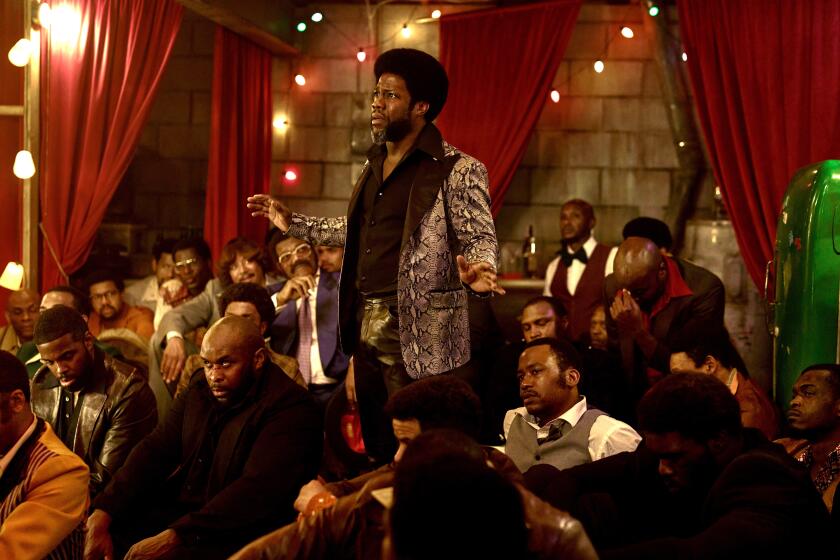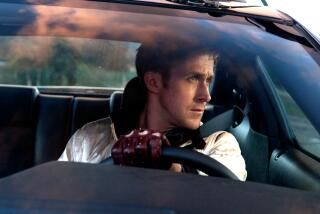Kevin Hart leads A-list cast in ‘Fight Night,’ a fact-stretching series about an infamous heist
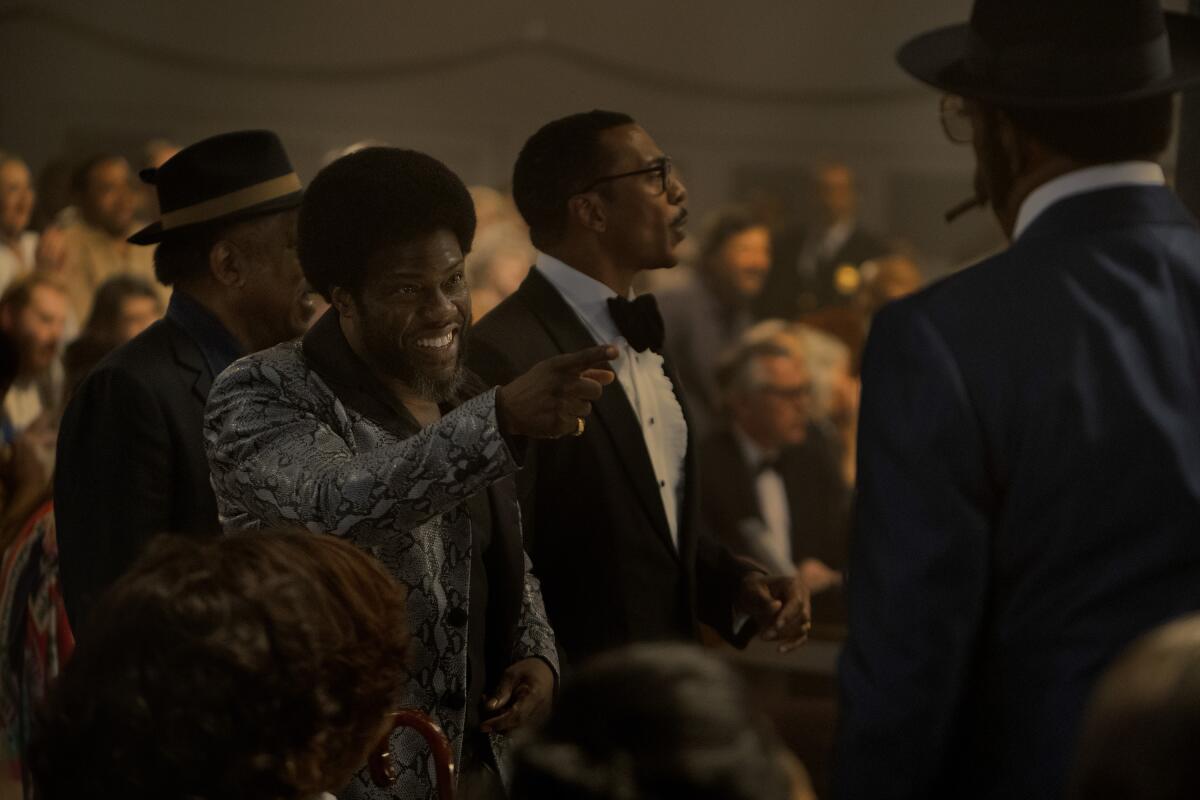
On Oct. 26, 1970, the night Muhammad Ali made his comeback fight in Atlanta against Jerry Quarry, a houseful of party guests, including some heavy hitters in the world of organized crime, were robbed at a suburban after-party — a story highly reported at the time and recently the subject of a true-crime podcast, “Fight Night.” Now it’s been translated by Shaye Ogbonna (“The Chi”) into a much-embroidered hodgepodge of a limited series, “Fight Night: The Million Dollar Heist,” premiering Thursday on Peacock, with a starry cast in the principal, not-exactly-real-life roles.
Kevin Hart plays Gordon Williams, known as Chicken Man (not to be confused with the Chicken Man blown up in Philly in Bruce Springsteen’s “Atlantic City”) from a habit of buying chicken sandwiches for pretty girls. Williams (whom I’ll call Williams because I don’t want to keep writing “Chicken Man”) is a self-described hustler, who primarily makes his living off the numbers, the unofficial lottery of the inner city. He’s an endearing and popular neighborhood figure — it’s comedian Kevin Hart, after all — except to the people to whom he owes money.
The Peacock limited series with an all-star ensemble focuses on an infamous crime that took place on the same night as Muhammad Ali’s historic 1970 comeback fight in Atlanta.
When a connected friend, Silky Brown (Atkins Estimond), mentions that New York “Black Godfather” Frank Moten (Samuel L. Jackson) will be in town for the fight, Williams, hoping to become Moten’s man in Atlanta, sells him on throwing Moten and other criminal big shots — notably New Jersey bigwig Cadillac Richie (Terrence Howard) — a casino-style party at his house. That is to say, the house he shares with his girlfriend, Vivian (Taraji P. Henson), rather than the one he shares with his wife, Faye (Artrece Johnson), and their children. Nefarious villains get wind of this and plot to rob the entire party.
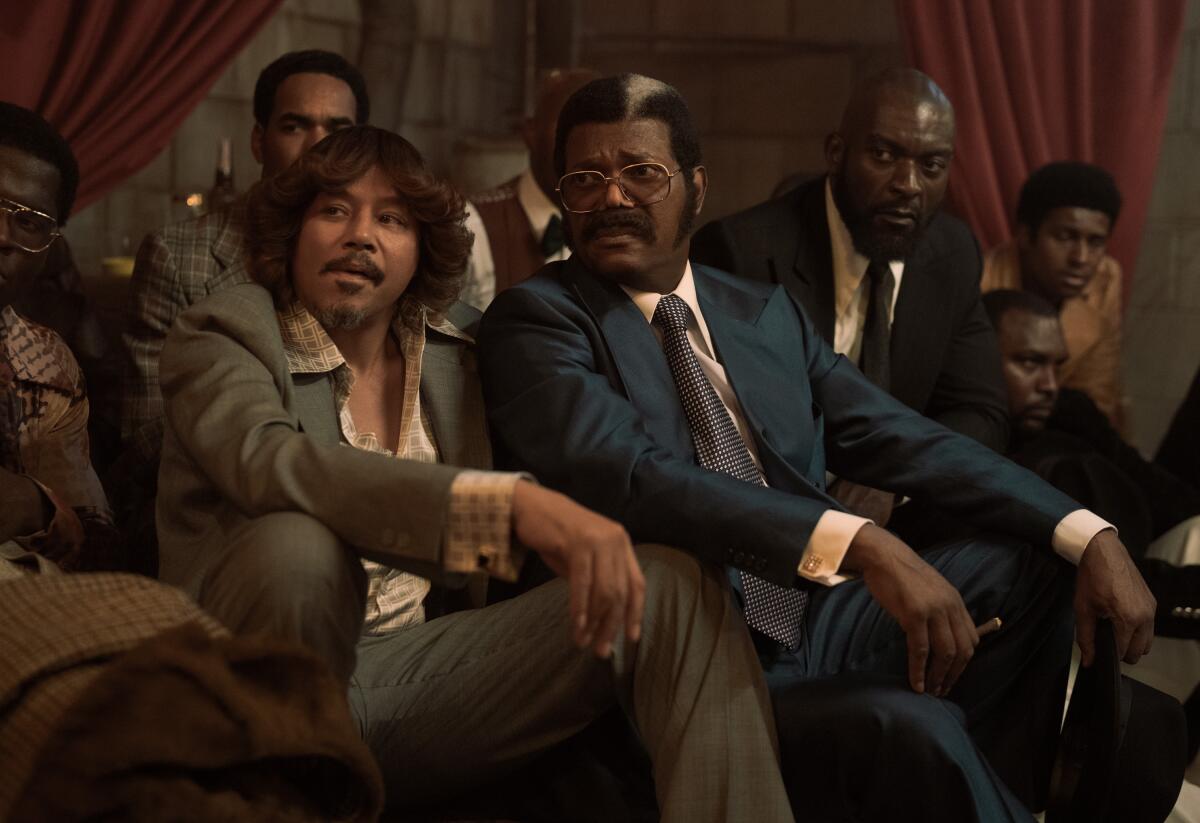
Although most of what precedes and follows this event is invention, the mechanics of the robbery, as pictured, pretty much accord with the established facts — masked gunmen escorting arriving guests straight into the basement, where they’re stripped of their valuables and clothing. Estimates of the haul — only estimates, because all but a few guests were loath to talk or press charges — inched up to around a million dollars, a conveniently round, impressive number suitable for a miniseries subtitle. As the homeowner, Williams, though a victim himself, was bannered in the press as the prime suspect, painting a target on his back.
Meanwhile, straight-arrow cop J.D. Hudson (Don Cheadle), Atlanta’s first Black detective lieutenant, is assigned to protect the controversial Ali (Dexter Darden, a couple of inches shorter than the champ but fit for the part in all other respects), doubly a target for refusing to be drafted and being Black in a state where the Klan is active. (Segregationist governor Lester Maddox will make a bizarre, unbelievable and certainly historically inaccurate cameo appearance on a lonely country road as Hudson drives Ali to his plane out of town.)
Related business — not quite enough of it to constitute a theme, but peppering the series in a way to remind us of its presence — involves the future of Atlanta, characterized as a hick town set to become a center of Black wealth and power.
In this telling, guarding Ali begins as a distasteful job for Hudson, a veteran who thinks Ali should have served. (“Baby, you served in Missouri,” his wife, Delores, played by Marsha Stephanie Blake, reminds him.) He forgetfully addresses Ali as Mr. Clay, who calls him “Officer Mayberry” in return, and their antagonism provides a platform to make points about race in America. But as they spend time together, before Ali exits the series in the third episode of eight, a mutual appreciation grows. This could make the basis of a sweet little indie film — it’s certainly the most uplifting passage in the series — but in context, it’s a curtain-raiser to the action film waiting in the wings.
With Ali gone, Hudson is assigned to investigate the robbery at Williams’ house; as a Black man, it’s thought he might have better luck with the witnesses. Fellow Black lieutenant J.H. Amos, his partner in the actual investigation, has disappeared from the narrative; in his place, we get a competitive, violent, racist white cop (Ben VanderMey) whom Hudson is determined to take down.
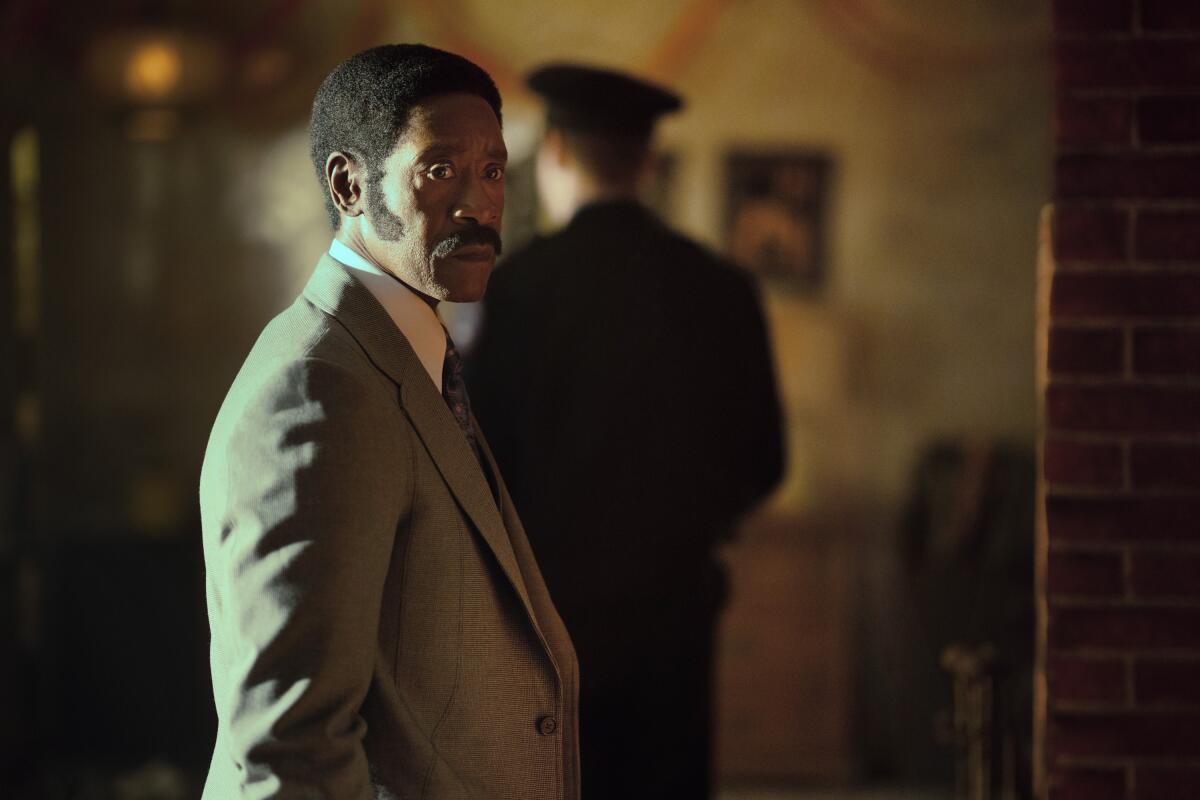
The retro credits, split-screen effects and period R&B songs suggest something lighthearted out of the gate, but much of it is very dark — there are a lot of guns, waved around, held to heads, often fired. Most of the characters here are criminals, ranging from the semicomical, relatively harmless Williams to the deceptively urbane Moten to the merely thuggish — though there is some attempt to delineate the worse and less worse among the robbers, and in some cases even engage one’s sympathy.
But this is not “Ocean’s 11” or “The Thomas Crown Affair,” despite its generous use of late-’60s/early-’70s visual tropes. “Fight Night” flirts with a variety of styles — blaxploitation, police procedural, social drama, the buddy-cop movie — which are successful on their own terms but don’t easily cohere. And as the series gets closer to its conclusion, the plot runs farther and farther from the facts, sacrificing historicity and even plausibility for genre-film excitement and culminating with a sting that catapults matters out of the real and into the ridiculous.
Any project that gathers Cheadle, Jackson, Henson, Howard and Hart in one place is going to be worth a look, however successful or unsuccessful it is on the whole, and everyone gets to do some capital-A acting along the way; indeed, at times it seems that scenes have been designed precisely to that end, with quasi-theatrical monologues that give the actors room to stretch. Anything less would seem … inhospitable, like locking them up in a basement.
More to Read
The complete guide to home viewing
Get Screen Gab for everything about the TV shows and streaming movies everyone’s talking about.
You may occasionally receive promotional content from the Los Angeles Times.
